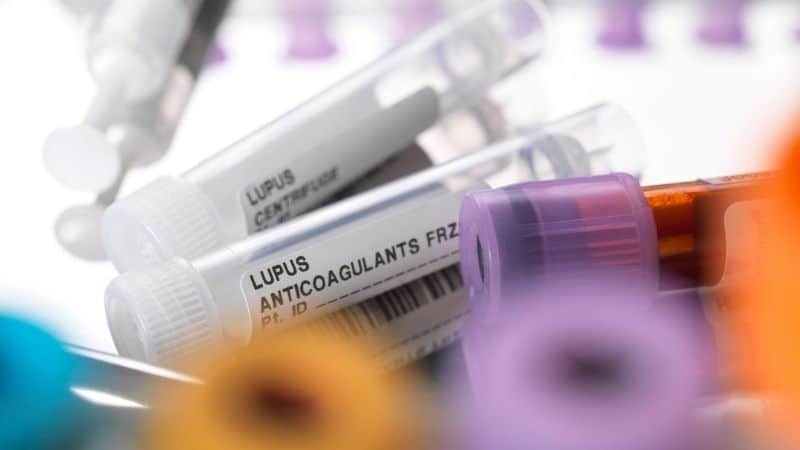- Almost 1.5 million Americans and 5 million people globally experience some form of lupus symptoms. It can affect anyone, especially women of childbearing age.
- 9 out of 10 lupus-affected adults are women, and 1 in 3 lupus cases suffer from multiple autoimmune diseases.
- It is believed (10-15)% of people with lupus will die prematurely because of lupus complications. As per the Lupus Foundation of America-funded study, lupus was among the top 20 leading causes of death in females aged 5-64 years.
This article is all on a type of autoimmune disease-causing inflammation in the body’s connective tissues. It can affect anyone, especially women of age between 12-and 51 years.
Many of us must have experienced an unusual pain in the wrist once getting injured while playing outdoor games. The symptoms will appear as if your bones are getting weak, but the reason could be something else.
Many growing adults also face lupus rash (butterfly-shaped) covering the cheeks and bridge of the nose. Depending on the individual health, the lupus symptoms occur. Unfortunately, there is no permanent cure, but lupus treatment can help in controlling symptoms.
In the last 10 years, a new medicine group known as biologics or biological, medical therapy has successfully treated lupus after many biological, clinical trials.
What Is Lupus?
Lupus is a chronic autoimmune disease that causes inflammation and pain in any part of the body. In this condition, the immune system responsible for fighting infections attacks the healthy tissues.
Th infection can happen to anyone, but some people are born with a tendency to develop lupus. Other factors, such as some drugs or sunlight, just ignite the infection.
What Causes Lupus?
By the term autoimmune disease, it is clear lupus is caused due to our own body’s immune system dysfunction. Basically, our immune system causes the disease by attacking healthy tissues in our body.
Lupus depends on genetics and your environment. It is observed that people with an inherited predisposition for the disease will get triggered by some usage of drugs or their environment. Although these causes are based on the case studies, theoretically, the reason is unknown.
But the scientists do know about the things that trigger the infection, they are:-
- Sunlight: Exposure to the sun has been found to work as a catalyst in lupus infection. Getting exposed to UV rays causes sunburn damaging the cells, which further gets damaged by the immune system among people with lupus infection. Leaving it untreated can lead to joint pain and fatigue.
- Infections: Generally, when a person gets a fever(sick), his immune system fights against the fever and stops. But in the case of lupus patients, even after the sickness is resolved, the immune system keeps fighting. This time healthy tissue gets damaged.
Now the question comes which infections cause lupus? Here are they:-
- Cytomegalovirus
- Epstein-Barr virus, responsible for mononucleosis
- Herpes zoster virus responsible for shingles
- Medicine side effects: Some medicines make our immune system overreact, causing drug-induced lupus. Around 50 different drugs are associated with inducing lupus. These medicines are often used for treating heart disease, thyroid disease, infections, and hypertension.
Now the question is, what drugs cause lupus? They are as follows:-
- Azathioprine (Imuran, Azasan)
- Isoniazid (NIazid), minocycline (Dynacin, Minocin) for infections
- Mycophenolate (Cellcept)
- Penicillamine for rheumatoid arthritis
- Methotrexate (Trexall, Xatmep, others)
- Procainamide (Pronestyl) for heart rhythm complications
- Cyclosporine (Sandimmune, Neoral, Gengraf)
- Quinidine (Quinaglute) for treating malaria and complications related to heart rhythm
- leflunomide (Arava)
- Hydralazine (Apresoline) for hypertension
If planning to overcome hypertension, here are some other medicines for it Doxazosin(Doxacard), Amlodipine(Amlip), or Lisinopril+Hydrochlorothiazide(Cipril-H). Ask your doctor, they might be a good substitute.
Also Read: Effective Ways to Distance Cholera Infection
How Does Lupus Make You Feel?
The symptoms depend on the location of the infection. But the most common ones are as follows:-
- Intense fatigue
- Fever
- Difficulty while breathing
- Bruise easily
- Pain, stiffness, and swelling in joints
- Muscle aches
- Skin rash on the face or body
- Extreme sun sensitivity
- Weight loss
- Pain in chest
- Nose, mouth, or throat sores
- Enlarged lymph nodes
- Poor circulation in fingers and toes
- Bald patches and hair loss
Less common symptoms include:
- Confusion
- Seizures
- Anaemia
- Dizziness
- Headaches
Some lupus symptoms demand immediate medical help, such as:-
- Severe belly pain
- Shortness of breath
- Seizures
- Pain in the chest
- Confusion
- Severe headache with
- Neck stiffness
- Fever
What Happens When Lupus Goes Untreated?
Depending on the area of infection, lupus complications occur. They are categorized as:-
- Kidney: Kidney failure is one of the leading causes of death among people with lupus. The disease can cause severe kidney damage.
- Central Nervous System & Brain: Complications like headaches, dizziness, behaviour changes, vision problems, and even strokes or seizures may occur if lupus affects this area. Lupus patients may also experience memory problems and difficulty expressing their thoughts.
- Blood: Complications can lead to anaemia or an increased risk of bleeding or blood clotting.
- Lungs: Lupus complications in the lungs causes inflammation of the chest cavity lining, causing painful breathing. It also increases the risk of bleeding into the lungs and pneumonia.
- Heart: Leaving lupus untreated located around the heart can inflate heart muscles, arteries, heart membrane, cardiovascular disease, and heart attack.
Is Lupus Inherited From Mother Or Father?
Lupus does not run in families, but some case studies have been found with inherited tendencies, although without a clear pattern. As per the Lupus Foundation of America:-
- 20% of the people with lupus were found to have the infection in parents or siblings with lupus.
- Others whose family history was free from lupus had one thing in common; other autoimmune diseases.
However, lupus isn’t generally inherited from the parents directly. Mostly, people inherit a genetic predisposition, a mutation, or a set of mutations that increase the risk of having Systemic lupus erythematosus(SLE). Therefore, not everyone with such genetic traits ends up having a lupus infection.
Is Lupus Cancer?
Developing the risk of cancer is one of the complications of lupus. This autoimmune disease is associated with the increased risk of certain types of cancer, such as lymphoma or cervix cancer. As per the researchers, immunosuppressive medications like azathioprine (Imuran) and mycophenolate mofetil (Cellcept) contribute to cancer development.
However, as per the studies, the cancer risk is actually greatest at the early stage of the disease.
How Is Lupus Diagnosed?
Diagnosing lupus can be difficult because its signs and symptoms often mimic other ailments. But the most distinctive sign of the disease is the rashes that resemble the wings of a butterfly unfolding across both cheeks. This occurs in the majority of lupus patients.
Some of the most commonly used diagnostic tests for lupus are as follows:-
Blood Tests
Antinuclear Antibody (ANA): It is a type of antibody directed against the cell nuclei. It is present in every one of us. The appearing pattern of the antibodies sometimes helps the doctors to determine the specific disease a person has.
Antiphospholipid Antibodies (APLs): It is a type of antibody directed against phospholipids, present in up to 60% of people with the infection. Their presence can help the doctor confirm a diagnosis.
Anti-Sm: It is an antibody directed against a specific protein in the nuclei cell, Sm. This protein is not present in people with lupus. So detecting this helps the doctor to know the presence of lupus infection.
Anti-dsDNA: It is a protein directed against double-standard DNA. Almost (75-90)% of the people with lupus have a positive anti-dsDNA test. This will help confirm the diagnosis.
In some cases, negative anti-dsDNA tests fail to confirm the presence of the infection. As 25% of the patients were found negative in this test.
Anti-Ro(SSA) and Anti-La(SSB): These two proteins are commonly found together against ribonucleic acid (RNA) proteins. It is often found in 24-60% of patients. But just like other antibody tests, the test is not positive in many patients.
C-Reactive Protein (CRP): It is a protein that marks inflammation. This test can help the doctor monitor the inflammation and indicate disease activity or the treatment response.
Erythrocyte Sedimentation Rate (ESR): It measures the speed of the moving RBCs and is also a marker of inflammation. This way, doctors try to know the changes in the activity of the disease.
Complete Blood Cell Count (CBC): It is a test used to measure the count of different blood cells. Abnormalities in the blood cell counts may occur due to the infection.
A combination of these tests, as mentioned above, helps the doctor to know the presence of the lupus infection. Additionally, some urine tests can help diagnose symptoms, such as:-
- Urine Protein/Microalbuminuria
- Creatinine Clearance
- Urinalysis
How To Treat Lupus?
The lupus treatment depends on the symptoms and the severity. Consult with the doctor, he will guide you with the possible treatment as per your prevailing condition. Here are the possible ways of lupus treatment:-
Nonsteroidal anti-inflammatory drugs (NSAIDs): NSAIDs medications like naproxen sodium (Aleve) and ibuprofen (Advil, Motrin IB, others) may help in treating pain, swelling, and fever associated with lupus. The medicine can cause side effects, therefore consult with the doctor first before consuming it.
Antimalarial drugs: Some medications commonly used to treat malaria, such as hydroxychloroquine (Plaquenil). It affects the immune system and can help decrease the risk of flares. However, it can also lead to side effects, therefore consult with the doctor before consuming.
Corticosteroids: Some types of corticosteroids like prednisone can counter the effects of lupus. Even some high doses of steroids like methylprednisolone (Medrol) are often prescribed to control severe kidney and brain diseases.
The medicine is associated with some risk of side effects involving weight gain, easy bruising, thinning bones, high blood pressure, diabetes, and increased risk of infection.
Biologics: It used to be a new treatment or therapy on the market in 2010. They are genetically engineered proteins based on the body’s natural protein. They work on specific areas of the immune system, causing inflammation.
Biologics are also called “biologic therapy,” “biological therapy,” “biologicals,” or “biopharmaceuticals.” This group of medicines covers a large class of drugs made of different types.
There are 3 different types of biologics approved and being tested, such as:-
- Monoclonal antibodies
- Antibody fragments
- Bispecific antibody therapies












